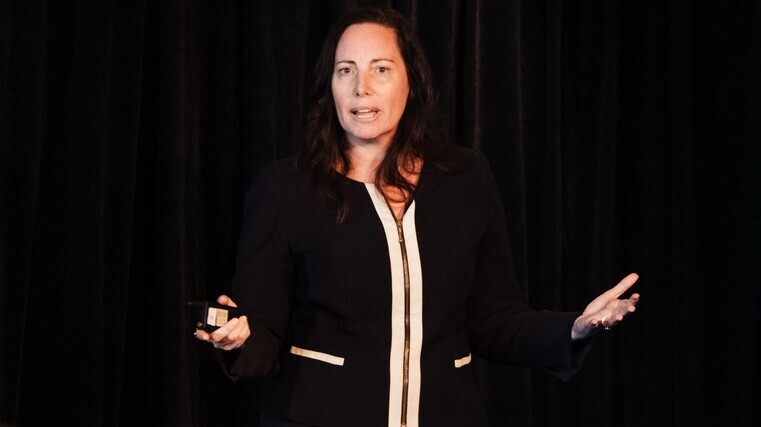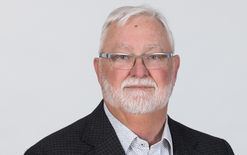Learning from Aussie friends

Seldom do fairytales play a role at international conferences but Diane Tate, chief executive officer of the Australian Finance Industry Association, had a lot to say about The Magic Pudding.
The 1918 comic fantasy by Norman Lindsay tells the story of Albert, a talking pudding who, no matter how often he’s eaten, always reforms. His mates must defend him against those who want him for themselves, even if he is bad-tempered and surly.
The constant conflict in this Australian classic about the pudding is said to be a satire on humans’ desire to hoard and protect what they have, and their desire to get more.
“But we all know there is no magic pudding, just as there’s no golden goose or pot of gold at the end of the rainbow,” Tate, pictured, told the Financial Services Federation’s conference in Auckland on November 6. “We don’t live in a fairytale world. We live in one that requires us to cope with constant change.”
Nothing stays the same forever and trade-offs are always required. That can present difficulties because humans are reasonably predictable and generally don’t like change, which is unsettling and disruptive.
Tate said: “Our environment constantly changes, be it war, trade, pandemic, politics or regulatory. Rather than see that as a threat, we need to be prepared and even welcome it.
“Change presents an opportunity to define ourselves, to set out our purpose, which is essential, because if we don’t, regulators do. And when that happens, it’s not magic regenerating pudding time, it’s beef wellington you’re going to be made to swallow.”
Australia’s Royal Commission into the lending sector, and industry reforms that followed, caused upheaval for many reasons across the ditch, not least because of the confused messaging handed down.
“We were being told to make finance available to all – but not to lend to everyone, to act ethically without defining what that meant and to protect the vulnerable while somehow magically enabling them to access finance more easily.
“Businesses need regulations that are easily understood. Members of the sector will tell you they want efficient, ethical, responsible and fair practices, and that aligns with what consumers, our clients, want too.
“Reputation is all in a regulated industry and self-regulation, keeping checks on your own polices and standards, is critical to that. In one study, seven out of every 10 customers said they’d quit their non-bank lender if they didn’t have standards.”
Australia and New Zealand, Tate argued, were supportive of balanced regulation. However, the situation became so confused after Australia’s reforms that in two court cases, around responsible lending and unfair trading practices, it was ruled that the authority’s interpretations of the law were wrong.
“Something is amiss when the people charged with upholding the law are getting told by the courts that they are wrong.”
Tate said it was critical regulatory systems were fair to all parties. “In Australia we love our homes, cars and mobile phones, and borrowing the money to get them. You only need look at Buy Now, Pay Later, which has billions in transaction levels and millions of accounts.”
She added the lending sector was an important part of the economy. “We are the ones that oil the wheels, who allow the finance that businesses rely on. We need to regulate for growth so that can continue and our economies can expand and provide the revenues and jobs our countries require.
“The lending sector isn’t some kind of bogey trading on the weak, but bad players can damage the reputation of the sector. It’s the old ‘it only takes one bad apple’ story. That’s why no one should fear oversight, even if it isn’t always perfect. If it means fewer bad apples, that’s a good thing.”





